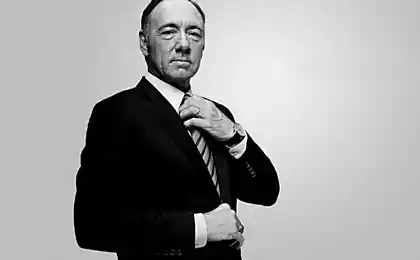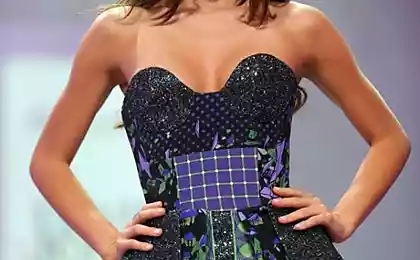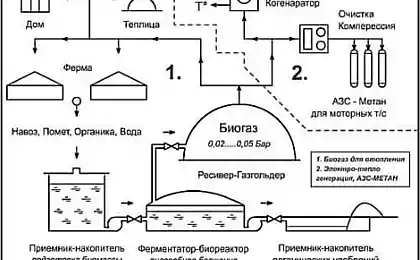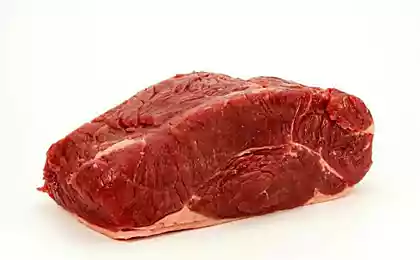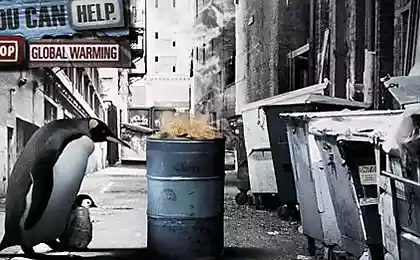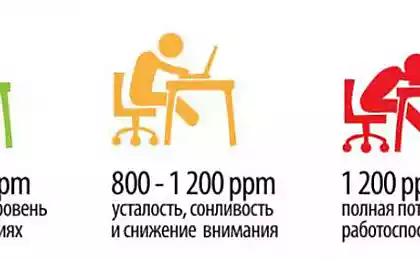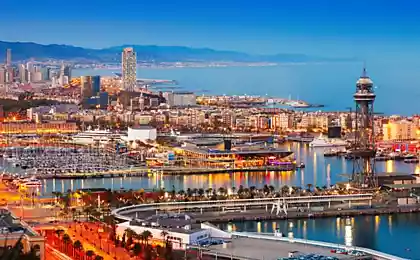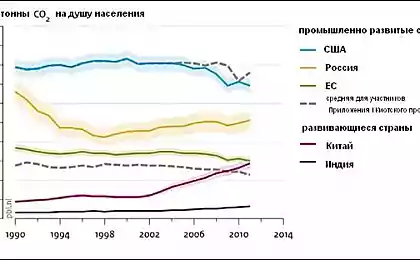654
We tend to associate happiness with consumption: why we bought, buy and will continue to buy
The publishing house "Alpina publisher" has published the book "Cool! As the subconscious desire to stand out rules the economy and shapes the appearance of our world." In it, Professor of philosophy and cognitive science Steven Quartz and the political scientist, specialist in the field of PR Anette ASP share results of a global survey of our behavior, correlated with the latest information in the field of neuroscience, Economics, and evolutionary biology.
Scientists have discovered why we are doomed to buy and why we want to look better than others. Published some chapters of their work.
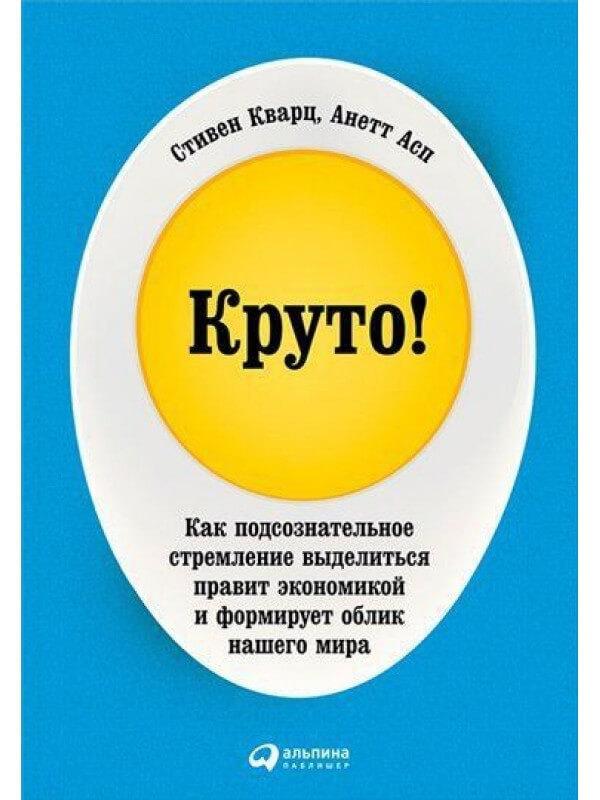
Secrets consumption
Leaves of palm trees swaying in the wind and cast shadows on the Gucci store, reminiscent of the temple. Nearby sparkles in the sunlight facade in industrial style. It has no name, no signs with the address — just in the spirit of the minimalist slope of Prada. Inside a mannequin, as placed on the military parade, look coldly over the heads of onlookers. In the next window, basking in the sun, spreading the smell of expensive leather bags from Fendi fifteen thousand dollars apiece, and silk suits from Bijan twenty thousand are patiently waiting for buyers. Showcase of Dolce & Gabbana decorate cosmicacceleration jeans, carefully torn at the knees and spattered with paint. There is also a plaque with the review of some marketing consultant: he says that the eight hundred dollars for a pair of jeans is a great investment and look you're even cooler than it is now. Maybe Rodeo drive in Beverly hills is not the typical place to conduct field research, but sometimes the key to the biggest mysteries of the human soul is found in unexpected places.
There is something strange in the fact that shopping areas are so attractive to tourists. This ordinary summer day most people on Rodeo drive are busy posing for the cameras in the background shopping, doing panoramic shots of the street and pressed their noses against the glass Windows. Because they are really not buying anything (and won't), all this is reminiscent of some ritual. Perhaps, for the alien anthropologist these bunch of tourists would be the same exotic and mysterious scene, a prehistoric tribe of people dancing around a campfire on a starry night.
According to the doctrine of consumerism, without clothes, you are not just goals — you senseless
What brings all these people on Rodeo drive? What fascinates tourists this street?
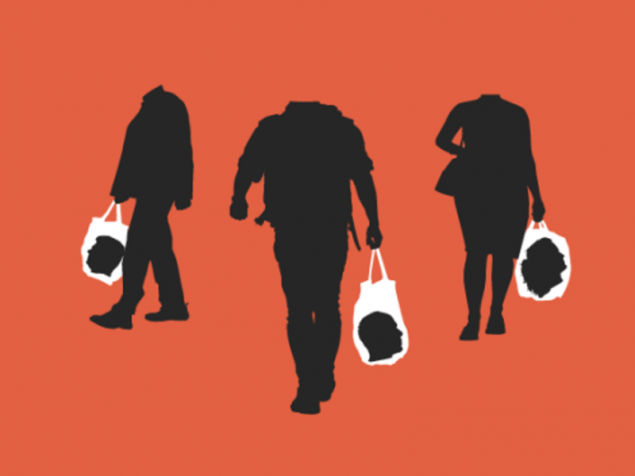
To understand this, pay attention to their mood. Look how they walk and freeze. You'll notice that they are as if drunk, their heads spinning from the fantasies inspired by fairy tales like "Beauty and the magical power of this place. Adults that this street is not located within an hour's drive South Park — seems to be the happiest place on earth. This, of course, more than entertainment. It's a dream. We are so accustomed to associate happiness with consumption, that we even can't think that Rodeo drive for the buyer — sorry for the questionable metaphor — something like Canterbury Cathedral or Mecca for the believer. That is the power of this street lies in something abstract, which is expressed here to the very essence of consumerism, in the promise that happiness can be achieved by purchasing more than is actually necessary. Alien anthropologist, I guess, would think people on Rodeo drive like the pilgrims who traveled a long way in order to achieve the local luxury and all that brings with it the revelation of consumerism.
We are all consumers. And all of us in varying degrees, lived under the influence of the creeds of consumerism, according to which happiness depends on what we have (a recent poll showed that only 6% of Americans believe that happiness can't buy money). When somebody says that happiness money can not buy, it usually means that acquiring things will not bring happiness. But consumerism is more than just buying things. It allows you to gain a variety of experience, change the way of life. Let the bestselling Elizabeth Gilbert "Eat, pray, love" and attracted the attention of Oprah as a book about a woman searching for the meaning of life, but in fact, the description of the travels of the heroine — from enjoying the cuisine in Italy to yoga in India is an ode to consumerism and the lifestyle that it makes possible.
In our life the concept of "things" and "experience" are so closely intertwined that we can't always separate one from the other. Two tickets to his favorite baseball team is, but if you take a child, it will be an unforgettable experience. A Bicycle is a thing, but thanks to him you can gain the experience of a bike trip that would depend on the wine region with friends. Or will each week to participate in the bike ride local club to ride a different race and make the bike the basis of their lifestyle. It is possible that the lifestyle of a cyclist, which became possible thanks to consumerism, will soon begin to define who you are.
Think about how your own style of consumption conveys who you are — my own and others ' eyes. According to the doctrine of consumerism, without clothes, you are not just goals — you are pointless. This is because in a consumer culture things, living a double life, being, on the one hand, material objects, and other symbols or signals that explicitly or implicitly convey your values, aspirations and even fears. All of this together is a way of life that is only possible through consumerism. In fact, according to the views of some social critics, the world of goods created social categories to structure personal identity and regulating society.
The evolution of the consumer
Imagine that hectic Friday evening you came to the Mall and then you fit woman with a folder in his hands. Her simple green sweater, and she asked, could you answer a few questions. What is the probability that you'll agree? And may affect your decision the fact that the jumper has a green crocodile Lacoste? How about a simpler logo? All whom we asked this question, argued that their behavior will not depend on what logo they see. But the facts say otherwise. If the woman is the interviewer wearing a jumper without a logo or with the emblem of the little-known company, to answer her questions agree only 14% of visitors to the shopping centre, while a small crocodile on the chest lifts this number to 52%.
Now imagine that this woman knocked on your door and offered to make the donation known to the Fund for research of cardiovascular diseases. Would a crocodile on her cardigan on the amount you are willing to give? All whom we asked this question, argued that no. But in fact, in the presence of the famous logo, the amount of donations almost doubled. No matter how small or crocodile, its impact is very significant.
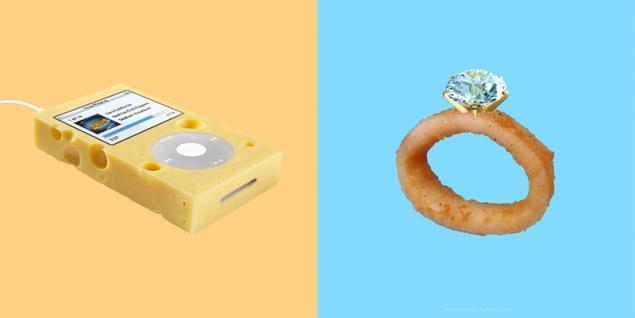
An explanation of the "crocodile effect" allows us to penetrate to the essence of the question of why we consume. As we said in the previous Chapter, to answer this question requires to be considered in a broader evolutionary context, and to explore the power, under the influence of which formed the brain structures involved in the process of consumption. Such an investigation gives an entirely different perspective on the driving forces of economic behaviour and consumer culture, different from the hitherto accepted points of view. This investigation will reveal not only why traditional views do not explain the "effect" crocodile", but also why they wrongly consider the nature of consumption. We will see that modern consumption is based on the ancient evolutionary adaptations to major problems in society. [...] But it is worth noting that wealth is not the only form of social status or the sign of the value of the partner. Many consumer motives will be Pavlovskii (i.e. conditional) reflexes of survival, the purpose of which is to give signals about our partner's qualities. Even wealth due to the value of a partner not just because it is the indication of the availability of certain resources, but also because it testifies the mind, equanimity, and other useful qualities.
The path status is not limited to wealth. Cool consumption has arisen due to increased possibilities of gaining status. For us it is important that certain communities have their own values and their understanding of the status (value of a social partner), and they serve as a basis for the formation of such a group of unions — no matter what they are: a tribe of hunter-gatherers, an office, a temperance society, a motorcycle club, a rebellious punk group or crowd of hipsters. To understand that all these groups shared, let's look at what the cause of consumption.
If you listen to the radio, existing on donations, but never send him money, so you enjoy the generosity of others
Let's play one anonymous game via the Internet — you and three other participants. Each will give a twenty dollars. You can put any of this money (at your discretion) to the group Fund. All invested in the Fund will be doubled and distributed evenly among the four participants. You'll keep everything you get in this round, and the next will start with a new twenty dollar.
For example, six rounds, and each player has full information about the group Fund. How much you invest in the first round? If players invest all their money (twenty dollars) each at the end of the round will receive forty. But the trap here. Each dollar invested will bring you in this case, only one more dollar. So the amount of money earned depends on how many will invest the rest of the participants. If you do not attach anything, and all the rest will be invested for twenty dollars, you will make the game thirty — plus those twenty, that you have left, so all in all you will have fifty dollars.
You will probably think that will do the rest. Will they be generous or will do the same, determined to win at the expense of someone else's generosity? As a rule, some players initially invest a fairly large amount, but after a few rounds, contributions decrease, and even those who initially were willing to cooperate, cease to invest their money in the group Fund. As a result, it is equal to zero.
These dilemmas reflect one of the main secrets of social life: how cooperation is possible if it interfere with personal interests? And this is not a speculative scientific problem — situations we face constantly.
Take, for example, the problem of climate change. To cope with it, all countries should reduce carbon dioxide emissions, but it hurts the economy. So the heads of state are tempted to do nothing with their own emissions, while strongly urging the other to take care of it.
Likewise, in agricultural areas, farmers often use shared resources (e.g. irrigation system), but everyone can try to pick up a disproportionately large part of it, which will lead to the depletion of the resource.
The same thing is happening with the international areas of fisheries.
But if you listen to the radio, existing on donations, but never send him money, so you enjoy the generosity of others. And if you evade paying taxes too.
Darwin goes to the store
Although some people the idea of applying Darwinian principles to the economic life of horrifying, in our opinion, the problem is just that economic theory is too little Darwinism.
Let me explain. The view of economic life as a competition for scarce resources is only half of the picture, relevant to the selection theory of Darwin. To understand the other half, let's look at an interesting experiment on the basis of which Darwin introduced another of his famous principle.
This experiment was conducted in the gardens of Woburn Abbey to the North of London. In the twenties of the nineteenth century, George Sinclair, head gardener of the Abbey, planted two equal size plot of land. In one of them he planted the plants of only two species, the other twenty. If the survival of one species necessarily would mean the extinction of the other — because of competition for light and nutrients on the land with twenty could see a tough competition between them, which resulted in the reduction of the yield. But Sinclair made an amazing discovery. Plot with twenty species were almost twice the yield of plot two (very valuable observation for understanding of the importance of biodiversity).
You, as a person, like her brother, no more than a random person passing by on the street: sibling rivalry for parental attention is a very powerful evolutionary force
One need not look far to see how the affect us in the future. If you have ever pondered why your personality is so different from the personalities of the brothers and sisters, why your kids don't like each other — despite a certain resemblance, then one of the answers is that competitive pressures acting in the family, similar to what exists in any ecosystem. In fact, you, as a person, like her brother, no more than a random person passing by on the street. As we saw in the fourth Chapter, on the example of the puppies spotted hyenas competing for mother's milk, sibling rivalry for parental attention is a very powerful evolutionary force. This is as true today as in prehistoric times. In bookstores on the shelves with the literature of education is full of books about the rivalry of children in the family, and in the section "Help yourself" — at least books on what emotional trauma leaves parental favoritism.
We believe that processes similar to those that cause differences between children in the family, and contribute to the emergence of various lifestyles and consumer microcultures. That is, adaptive trick of consumerism is how it reduces the competition for social status.
People are always concerned about status. When the way to achieve it is limited, we will compete for him, if we are not obstructed by any subordinate power (as happens, for example, in a traditional hierarchical society run by the elite). When the road to status open or we can create a new one, we often choose such a path, to avoid direct competition. Due to the diversification of status and the increase in its scope in society.
Lifestyle or microcultures of consumption is a social niche. Each niche has its own values and norms concerning the status. Being part of a social niche, the person finds a personal (status) and collective (respect) self-esteem. Status pluralism can be thought of as a social version of the garden of Sinclair.
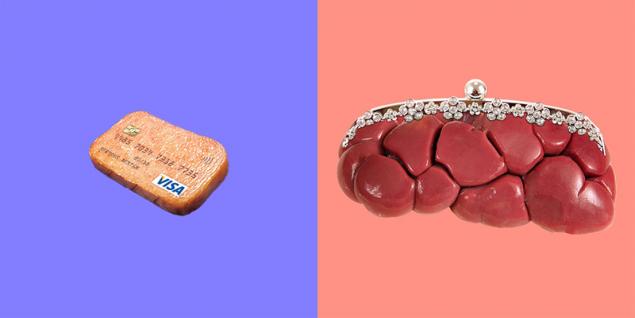
Reflecting on new discoveries, indicating that the increase in the purchasing power increases happiness, we wondered whether this is due to growing diversity of lifestyles. At the time Steve was teaching a class on the fair distribution of benefits — how a society should distribute benefits and obligations among its members (a few years ago he, together with Xu Ming and Cedric Anenon published an article about the study, obtaining images of the brain). It may seem that these themes are very far from each other, however, the observation of the famous American philosopher Robert Nozick, who made a huge contribution to the problem of equitable distribution, suggested to us the presence of provocative communication. Speaking about the problem of envy, Nozick wrote:
"Society is the easiest way to get rid of the strong differences in self-esteem of its members, if there will be no single principle of measurement; it must be replaced by a diverse set of measurements and principles."
But how really to achieve this in society? The more we thought about it, the better I understand what it must be like on a variety of consumer society. These "measurements" are created consumer microcultures — that helps people and groups differ from each other. The reference to Nozick about the "lack of unified measurement methodology" means that there should exist consensus about the ranking of life-style, that is, in society needed pluralism. Indeed, what Nozick wrote about how "the fragmentation of consensus," perfectly describes what is happening in our society in the last thirty years. If measurement was the only one we would see the formation hierarchy, in which each person would be those who stand above him. It's a lot of jealousy, and in this case the status seems to be a fixed resource.
Let's do a thought experiment. Imagine that there is only one sporting event — the race for a hundred meters. In this case, there is a very hard dilemma of status (not to mention the fact that the income from the Olympic games if the contest lasted not more than ten seconds, would be considerably reduced). Fame and sponsorship money has got to be a very small number of people. And keep in mind that even if everyone on Earth learned to run twice as fast, the hierarchy would remain the same. Value is not absolute, but relative speed.
But, suppose we add to this another competition running a mile. Now those who are not too good in the sprint, getting the chance to achieve good results in this contest, as the races at short and long distances require different skills.
In the society probably would have conducted endless debates about which event is better — sprint or running a mile. But people like these endless debates because the only correct answer there never will be. About immutable facts disputes are not conducted!
Of course, Hisham El-Guerrouj, who became the champion in run on long distances, do not suffer from a lack of status and, most likely, would not have reason to be envious of Usain Bolt. I bet he was jealous of him much less than that of the second Sprinter in the world, compare yourself with the Bolt in the same dimension.
Also interesting: Andrey Metelsky: the consumer society is messed up in the first place we
As a society imposes on us false ideals
Increasing the number of sports we will increase the total status in the sports world. There are very convincing reasons to believe that approximately it happened in sports over the last hundred years or so.published
Source: theoryandpractice.ru/posts/12426-steven-quartz-anette-asp
Scientists have discovered why we are doomed to buy and why we want to look better than others. Published some chapters of their work.

Secrets consumption
Leaves of palm trees swaying in the wind and cast shadows on the Gucci store, reminiscent of the temple. Nearby sparkles in the sunlight facade in industrial style. It has no name, no signs with the address — just in the spirit of the minimalist slope of Prada. Inside a mannequin, as placed on the military parade, look coldly over the heads of onlookers. In the next window, basking in the sun, spreading the smell of expensive leather bags from Fendi fifteen thousand dollars apiece, and silk suits from Bijan twenty thousand are patiently waiting for buyers. Showcase of Dolce & Gabbana decorate cosmicacceleration jeans, carefully torn at the knees and spattered with paint. There is also a plaque with the review of some marketing consultant: he says that the eight hundred dollars for a pair of jeans is a great investment and look you're even cooler than it is now. Maybe Rodeo drive in Beverly hills is not the typical place to conduct field research, but sometimes the key to the biggest mysteries of the human soul is found in unexpected places.
There is something strange in the fact that shopping areas are so attractive to tourists. This ordinary summer day most people on Rodeo drive are busy posing for the cameras in the background shopping, doing panoramic shots of the street and pressed their noses against the glass Windows. Because they are really not buying anything (and won't), all this is reminiscent of some ritual. Perhaps, for the alien anthropologist these bunch of tourists would be the same exotic and mysterious scene, a prehistoric tribe of people dancing around a campfire on a starry night.
According to the doctrine of consumerism, without clothes, you are not just goals — you senseless
What brings all these people on Rodeo drive? What fascinates tourists this street?

To understand this, pay attention to their mood. Look how they walk and freeze. You'll notice that they are as if drunk, their heads spinning from the fantasies inspired by fairy tales like "Beauty and the magical power of this place. Adults that this street is not located within an hour's drive South Park — seems to be the happiest place on earth. This, of course, more than entertainment. It's a dream. We are so accustomed to associate happiness with consumption, that we even can't think that Rodeo drive for the buyer — sorry for the questionable metaphor — something like Canterbury Cathedral or Mecca for the believer. That is the power of this street lies in something abstract, which is expressed here to the very essence of consumerism, in the promise that happiness can be achieved by purchasing more than is actually necessary. Alien anthropologist, I guess, would think people on Rodeo drive like the pilgrims who traveled a long way in order to achieve the local luxury and all that brings with it the revelation of consumerism.
We are all consumers. And all of us in varying degrees, lived under the influence of the creeds of consumerism, according to which happiness depends on what we have (a recent poll showed that only 6% of Americans believe that happiness can't buy money). When somebody says that happiness money can not buy, it usually means that acquiring things will not bring happiness. But consumerism is more than just buying things. It allows you to gain a variety of experience, change the way of life. Let the bestselling Elizabeth Gilbert "Eat, pray, love" and attracted the attention of Oprah as a book about a woman searching for the meaning of life, but in fact, the description of the travels of the heroine — from enjoying the cuisine in Italy to yoga in India is an ode to consumerism and the lifestyle that it makes possible.
In our life the concept of "things" and "experience" are so closely intertwined that we can't always separate one from the other. Two tickets to his favorite baseball team is, but if you take a child, it will be an unforgettable experience. A Bicycle is a thing, but thanks to him you can gain the experience of a bike trip that would depend on the wine region with friends. Or will each week to participate in the bike ride local club to ride a different race and make the bike the basis of their lifestyle. It is possible that the lifestyle of a cyclist, which became possible thanks to consumerism, will soon begin to define who you are.
Think about how your own style of consumption conveys who you are — my own and others ' eyes. According to the doctrine of consumerism, without clothes, you are not just goals — you are pointless. This is because in a consumer culture things, living a double life, being, on the one hand, material objects, and other symbols or signals that explicitly or implicitly convey your values, aspirations and even fears. All of this together is a way of life that is only possible through consumerism. In fact, according to the views of some social critics, the world of goods created social categories to structure personal identity and regulating society.
The evolution of the consumer
Imagine that hectic Friday evening you came to the Mall and then you fit woman with a folder in his hands. Her simple green sweater, and she asked, could you answer a few questions. What is the probability that you'll agree? And may affect your decision the fact that the jumper has a green crocodile Lacoste? How about a simpler logo? All whom we asked this question, argued that their behavior will not depend on what logo they see. But the facts say otherwise. If the woman is the interviewer wearing a jumper without a logo or with the emblem of the little-known company, to answer her questions agree only 14% of visitors to the shopping centre, while a small crocodile on the chest lifts this number to 52%.
Now imagine that this woman knocked on your door and offered to make the donation known to the Fund for research of cardiovascular diseases. Would a crocodile on her cardigan on the amount you are willing to give? All whom we asked this question, argued that no. But in fact, in the presence of the famous logo, the amount of donations almost doubled. No matter how small or crocodile, its impact is very significant.

An explanation of the "crocodile effect" allows us to penetrate to the essence of the question of why we consume. As we said in the previous Chapter, to answer this question requires to be considered in a broader evolutionary context, and to explore the power, under the influence of which formed the brain structures involved in the process of consumption. Such an investigation gives an entirely different perspective on the driving forces of economic behaviour and consumer culture, different from the hitherto accepted points of view. This investigation will reveal not only why traditional views do not explain the "effect" crocodile", but also why they wrongly consider the nature of consumption. We will see that modern consumption is based on the ancient evolutionary adaptations to major problems in society. [...] But it is worth noting that wealth is not the only form of social status or the sign of the value of the partner. Many consumer motives will be Pavlovskii (i.e. conditional) reflexes of survival, the purpose of which is to give signals about our partner's qualities. Even wealth due to the value of a partner not just because it is the indication of the availability of certain resources, but also because it testifies the mind, equanimity, and other useful qualities.
The path status is not limited to wealth. Cool consumption has arisen due to increased possibilities of gaining status. For us it is important that certain communities have their own values and their understanding of the status (value of a social partner), and they serve as a basis for the formation of such a group of unions — no matter what they are: a tribe of hunter-gatherers, an office, a temperance society, a motorcycle club, a rebellious punk group or crowd of hipsters. To understand that all these groups shared, let's look at what the cause of consumption.
If you listen to the radio, existing on donations, but never send him money, so you enjoy the generosity of others
Let's play one anonymous game via the Internet — you and three other participants. Each will give a twenty dollars. You can put any of this money (at your discretion) to the group Fund. All invested in the Fund will be doubled and distributed evenly among the four participants. You'll keep everything you get in this round, and the next will start with a new twenty dollar.
For example, six rounds, and each player has full information about the group Fund. How much you invest in the first round? If players invest all their money (twenty dollars) each at the end of the round will receive forty. But the trap here. Each dollar invested will bring you in this case, only one more dollar. So the amount of money earned depends on how many will invest the rest of the participants. If you do not attach anything, and all the rest will be invested for twenty dollars, you will make the game thirty — plus those twenty, that you have left, so all in all you will have fifty dollars.
You will probably think that will do the rest. Will they be generous or will do the same, determined to win at the expense of someone else's generosity? As a rule, some players initially invest a fairly large amount, but after a few rounds, contributions decrease, and even those who initially were willing to cooperate, cease to invest their money in the group Fund. As a result, it is equal to zero.
These dilemmas reflect one of the main secrets of social life: how cooperation is possible if it interfere with personal interests? And this is not a speculative scientific problem — situations we face constantly.
Take, for example, the problem of climate change. To cope with it, all countries should reduce carbon dioxide emissions, but it hurts the economy. So the heads of state are tempted to do nothing with their own emissions, while strongly urging the other to take care of it.
Likewise, in agricultural areas, farmers often use shared resources (e.g. irrigation system), but everyone can try to pick up a disproportionately large part of it, which will lead to the depletion of the resource.
The same thing is happening with the international areas of fisheries.
But if you listen to the radio, existing on donations, but never send him money, so you enjoy the generosity of others. And if you evade paying taxes too.
Darwin goes to the store
Although some people the idea of applying Darwinian principles to the economic life of horrifying, in our opinion, the problem is just that economic theory is too little Darwinism.
Let me explain. The view of economic life as a competition for scarce resources is only half of the picture, relevant to the selection theory of Darwin. To understand the other half, let's look at an interesting experiment on the basis of which Darwin introduced another of his famous principle.
This experiment was conducted in the gardens of Woburn Abbey to the North of London. In the twenties of the nineteenth century, George Sinclair, head gardener of the Abbey, planted two equal size plot of land. In one of them he planted the plants of only two species, the other twenty. If the survival of one species necessarily would mean the extinction of the other — because of competition for light and nutrients on the land with twenty could see a tough competition between them, which resulted in the reduction of the yield. But Sinclair made an amazing discovery. Plot with twenty species were almost twice the yield of plot two (very valuable observation for understanding of the importance of biodiversity).
You, as a person, like her brother, no more than a random person passing by on the street: sibling rivalry for parental attention is a very powerful evolutionary force
One need not look far to see how the affect us in the future. If you have ever pondered why your personality is so different from the personalities of the brothers and sisters, why your kids don't like each other — despite a certain resemblance, then one of the answers is that competitive pressures acting in the family, similar to what exists in any ecosystem. In fact, you, as a person, like her brother, no more than a random person passing by on the street. As we saw in the fourth Chapter, on the example of the puppies spotted hyenas competing for mother's milk, sibling rivalry for parental attention is a very powerful evolutionary force. This is as true today as in prehistoric times. In bookstores on the shelves with the literature of education is full of books about the rivalry of children in the family, and in the section "Help yourself" — at least books on what emotional trauma leaves parental favoritism.
We believe that processes similar to those that cause differences between children in the family, and contribute to the emergence of various lifestyles and consumer microcultures. That is, adaptive trick of consumerism is how it reduces the competition for social status.
People are always concerned about status. When the way to achieve it is limited, we will compete for him, if we are not obstructed by any subordinate power (as happens, for example, in a traditional hierarchical society run by the elite). When the road to status open or we can create a new one, we often choose such a path, to avoid direct competition. Due to the diversification of status and the increase in its scope in society.
Lifestyle or microcultures of consumption is a social niche. Each niche has its own values and norms concerning the status. Being part of a social niche, the person finds a personal (status) and collective (respect) self-esteem. Status pluralism can be thought of as a social version of the garden of Sinclair.

Reflecting on new discoveries, indicating that the increase in the purchasing power increases happiness, we wondered whether this is due to growing diversity of lifestyles. At the time Steve was teaching a class on the fair distribution of benefits — how a society should distribute benefits and obligations among its members (a few years ago he, together with Xu Ming and Cedric Anenon published an article about the study, obtaining images of the brain). It may seem that these themes are very far from each other, however, the observation of the famous American philosopher Robert Nozick, who made a huge contribution to the problem of equitable distribution, suggested to us the presence of provocative communication. Speaking about the problem of envy, Nozick wrote:
"Society is the easiest way to get rid of the strong differences in self-esteem of its members, if there will be no single principle of measurement; it must be replaced by a diverse set of measurements and principles."
But how really to achieve this in society? The more we thought about it, the better I understand what it must be like on a variety of consumer society. These "measurements" are created consumer microcultures — that helps people and groups differ from each other. The reference to Nozick about the "lack of unified measurement methodology" means that there should exist consensus about the ranking of life-style, that is, in society needed pluralism. Indeed, what Nozick wrote about how "the fragmentation of consensus," perfectly describes what is happening in our society in the last thirty years. If measurement was the only one we would see the formation hierarchy, in which each person would be those who stand above him. It's a lot of jealousy, and in this case the status seems to be a fixed resource.
Let's do a thought experiment. Imagine that there is only one sporting event — the race for a hundred meters. In this case, there is a very hard dilemma of status (not to mention the fact that the income from the Olympic games if the contest lasted not more than ten seconds, would be considerably reduced). Fame and sponsorship money has got to be a very small number of people. And keep in mind that even if everyone on Earth learned to run twice as fast, the hierarchy would remain the same. Value is not absolute, but relative speed.
But, suppose we add to this another competition running a mile. Now those who are not too good in the sprint, getting the chance to achieve good results in this contest, as the races at short and long distances require different skills.
In the society probably would have conducted endless debates about which event is better — sprint or running a mile. But people like these endless debates because the only correct answer there never will be. About immutable facts disputes are not conducted!
Of course, Hisham El-Guerrouj, who became the champion in run on long distances, do not suffer from a lack of status and, most likely, would not have reason to be envious of Usain Bolt. I bet he was jealous of him much less than that of the second Sprinter in the world, compare yourself with the Bolt in the same dimension.
Also interesting: Andrey Metelsky: the consumer society is messed up in the first place we
As a society imposes on us false ideals
Increasing the number of sports we will increase the total status in the sports world. There are very convincing reasons to believe that approximately it happened in sports over the last hundred years or so.published
Source: theoryandpractice.ru/posts/12426-steven-quartz-anette-asp
Natural heat recovery — eco-friendly air conditioner for a country house
Subcutaneous fat: no fat, no abundance



